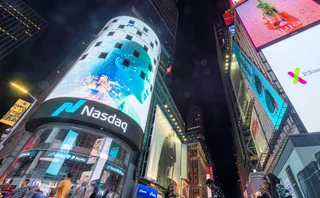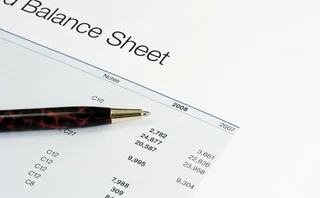
Korea drives Asian option growth
Turnover in equity index contracts rose by 40% at Asian exchanges in the fourth quarter of last year, according to the latest quarterly report from the Bank for International Settlements (BIS). The Switzerland-based banking body pointed to the rapid development of options trading in Korea as leading the charge.
Philip Eme, senior vice-president of futures and options at SG, the investment banking division of French bank Société Générale, in Seoul, attributed the growth to a large upswing in retail use following the development of internet trading last year. “Local investors were just waiting for more possibilities in terms of increasing their trading," he said.
Sung Hee Hong, senior vice-president of the options market department at the Korea Stock Exchange (KSE) in Seoul, agreed, adding that more than 50% of trades now come through the internet. “Investors can now access a [KSE] member brokerage house’s system online and in real-time, and just click to submit an order," he said.
Hong believes the exchange’s September reduction of margin requirements, lower transaction fees, and the high levels of volatility in the underlying stock market following the September 11 terrorist attacks last year, also contributed to increased activity in the options market at the end of last year.
But a greater awareness of risk management - and the benefits of options - has helped the market since the Asian financial crisis in 1997, he added: “I think the fundamental reason is that investors in Korea realise the usefulness of this options contract for managing their risk.
This has led to a growing participation by local institutional investors, such as domestic securities houses, investment trust companies and investment managers, said James Rodríguez De Castro, managing director at Merrill Lynch in Hong Kong. “Right now, they are beginning to recognise that options are a useful risk management tool for portfolio managers to have.
The exchange is currently moving to upgrade its [trading] system to support larger transaction volumes, although Hong believes the market is now close to its peak. “We think the market is close to saturation, and in two to three years the market will eventually reach a peak," he said.
Only users who have a paid subscription or are part of a corporate subscription are able to print or copy content.
To access these options, along with all other subscription benefits, please contact info@risk.net or view our subscription options here: http://subscriptions.risk.net/subscribe
You are currently unable to print this content. Please contact info@risk.net to find out more.
You are currently unable to copy this content. Please contact info@risk.net to find out more.
Copyright Infopro Digital Limited. All rights reserved.
As outlined in our terms and conditions, https://www.infopro-digital.com/terms-and-conditions/subscriptions/ (point 2.4), printing is limited to a single copy.
If you would like to purchase additional rights please email info@risk.net
Copyright Infopro Digital Limited. All rights reserved.
You may share this content using our article tools. As outlined in our terms and conditions, https://www.infopro-digital.com/terms-and-conditions/subscriptions/ (clause 2.4), an Authorised User may only make one copy of the materials for their own personal use. You must also comply with the restrictions in clause 2.5.
If you would like to purchase additional rights please email info@risk.net
More on Exchanges
Nasdaq leads push to reform options regulatory fee
Proposed rule change would pare costs for traders, raise them for banks and defund smaller venues
Asia’s ETF assets on the rise – HKEX presents the results of Asia ETF survey 2019
Asia’s total ETF assets surged by 23.9% in the first half of 2019 thanks to an increasing adoption of ETFs into investment portfolios. According to a survey conducted by Hong Kong Exchanges and Clearing (HKEX), asset expansion in Asia’s ETF market is set…
NYSE Offers Exchange-Calculated Bitcoin Index, with More to Come
NYXBT will initially be based off data from Coinbase Exchange.
Deutsche Börse to set up Europe's first multi-asset RMB platform
German exchange group signs joint venture deal with CFFEX and Shanghai Stock Exchange
Exchange Revenue Figures Rise, Fall; Data Revenues Continue Steady Increase
A mostly positive mix of Q1 results also yield big increases in data revenues for some exchanges.
Lift-off for ASX Aussie dollar swap clearing business
Volumes jump following revamp of Sydney bourse's clearing incentive scheme
Exchange Data Revenues Make Positive Start to 2015
Acquisitions made up for some shortfalls in exchange revenues







